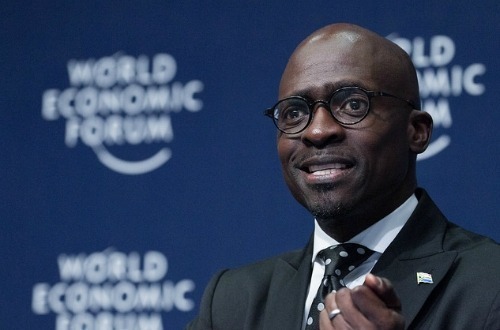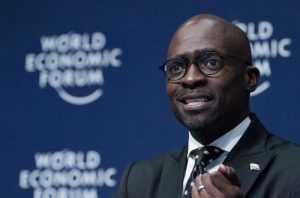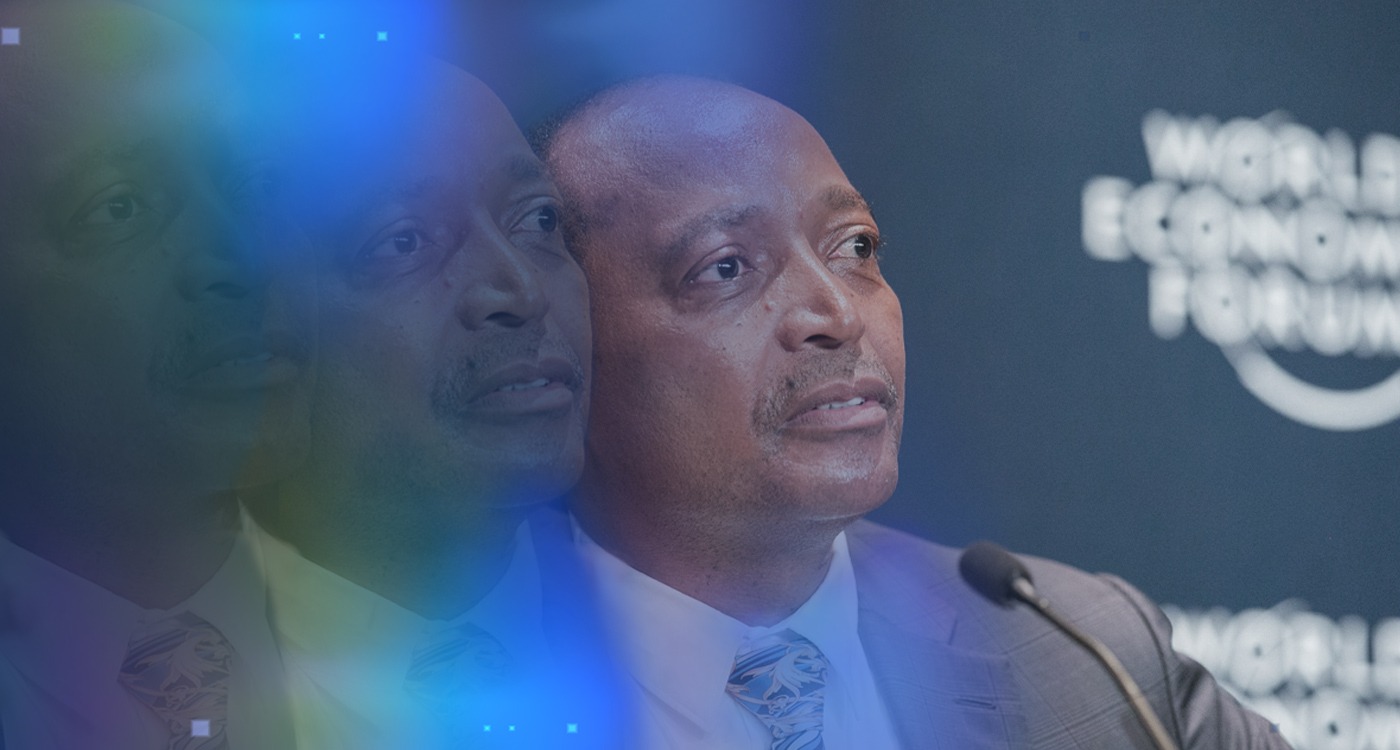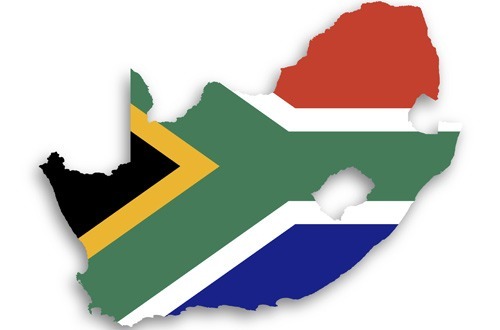All eyes will be fixed on South African Finance Minister Malusi Gigaba this week when he delivers his first Medium-Term Budget Policy Statement (MTBPS) amid concerns about fiscal challenges, widespread perceptions of government corruption and wasteful expenditure.
Gigaba, who took over the reigns of National Treasury following the controversial firing of Pravin Gordhan in April, will have his work cut out as he sets out the fiscal policy objectives and spending priorities over the three-year expenditure period.
The finance minister will have to pull a rabbit out of the hat on Wednesday in order rein in government’s more than R2 trillion debt while allocating funding to higher education, social welfare, and infrastructure projects, including the controversial nuclear build.
The South African Revenue Services (Sars) is already under pressure with reports suggesting that it may not be able to meet this year’s target. Projected tax income for the 2017-18 fiscal year is R1.41 trillions and the proposed expenditure R1.56 trillion.
Allegations of misuse of workers pensions, which total almost R1.9 trillion in the Public Investment Corporation coffers has sent jitters through South African markets.
For these reasons and others, managing partner at Deloitte Africa tax and legal services, Nazrien Kader, said this year’s MTBPS was expected to come under far greater scrutiny than usual.
“This year, allegations of ‘State capture’ and corruption in South Africa occupy the world stage, while the South African government remains pre-occupied with bailouts for state-owned entities – even while economists estimate that revenue collections will fall short of budgets continuing the steady downward trajectory, from an estimated shortfall of R30 billion earlier in the fiscal year to between R50 billion to R65 billion more recently, and rating agents have the country on watch,” Kader said.
Kader said that issues such as government incentives and allowances, carbon tax, sugar tax, the National Health Insurance (NHI), and South Africa’s ranking in the World Bank’s Competitiveness Index, were expected to be key themes in this year’s MTBPS.
Ettiene Retief, the chairperson of national tax and Sars committee of the South African Institute of Professional Accountants, said that Gigaba must be able to convince international markets that all is under control.
Retief said the lack of accountability in terms of wasteful and fruitless expenditure continues to erode tax morality in South Africa, and that taxpayers will have to be convinced that expenditure incurred by the government is “reasonable”.
“Tax collections in all three the major tax types (Personal Income Tax, Value Added Tax and Corporate Income Tax) are expected to be lower than expected in February,” Retief said.
“South Africans will need clarity on how Minister Gigaba is going to adjust his budget and whether he will be mindful of the additional cost of increased borrowings to make up for the anticipated tax collection shortfall. They will also need assurance that government will keep expenditure in check, and even cut costs at non-performing entities.”
Meanwhile, political instability may rise around the African National Congress’ presidential elections at the end of this year, and in the run-up to national polls in 2019.
Sovereign credit rating agencies will be watching out for any political ructions. Moody’s, Fitch and S&P Global Ratings downgraded the country’s sovereign credit rating following President Jacob Zuma’s axing of Gordhan as finance minister at the end of March.
All three agencies have warned that low growth at struggling State firms heavily reliant on government bailouts pose significant risks to the country’s ratings.
Moody’s and S&P are scheduled to review the country’s ratings on 24 November. (via African News Agency)
FASA Survey Measures Franchisee Success And Satisfaction
The Franchise Association of South Africa, in addition to conducting a survey on the franchise sector in relation to its franchisors, also surveys franchisees to find out how they are faring and what their challenges are. High on the list of priorities within the survey, which is sponsored by Sanlam, is their satisfaction levels in a number of areas ranging from satisfaction with their franchisor, their landlord, even their suppliers.
“All this feeds into keeping the relationship between franchisors and franchisees at a healthy level,” says Tony Da Fonseca, FASA’s chairman. “Being able to pick up undercurrents of uncertainty or areas that need improvement allows us as franchisors to step up our game and better service our franchisees. What is encouraging is that franchisees are optimistic about the growth of their businesses which means the potential for growth in our sector remains strong and positive.”
FASA’s survey showed four out of five franchisees surveyed (80%) would not hesitate to recommend their franchise brand to others. According to Vera Valasis, FASA’s executive director, this is the best endorsement that potential franchisees considering going into franchising have when researching a franchise.
Whilst franchisees are currently making an average of 9.5% nett profit, there are, however, some indications in the research that franchisees are not quite as positive about the growth of their businesses as they were a year ago. This is linked primarily to economic and political influences, resulting in new franchisees taking longer than previously suggested to break even.
The survey showed challenges facing the franchise industry related to finding skilled staff, being able to offer consistently good service and the poor economy.
Secondary challenges were growing the business with new customers, running costs and keeping prices competitive. Increased training in marketing the business and its products/services were identified as being of great benefit to the franchisee. (via Bizcommunity)
Top 50 EMEA Cloud Innovators Announced
The Top 50 EMEA Cloud Climbers Report, which recognises the top fifty EMEA businesses innovating in the cloud, is the first study of its kind explicitly dedicated to cloud computing’s transformational business impact.
The report is spearheaded by thought-leadership innovators HotTopics.ht and sponsored by application security and cloud experts F5 Networks.
The report features 50 companies from a wide range of industries, each assessed for excellence in strategic cohesion, market impact, operational performance and overall value. It also includes detailed case studies of selected Cloud Climbers, as well as pertinent cloud trend analysis.
The retail sector secured the most top 50 slots (12%), followed by financial services (8%), automotive (6%), sport (6%) and transport/logistics (4%). Marquee names in the report include Spotify (for continually evolving and optimising its massive music streaming service), Mercedes F1 (cloud-fuelled performance analytics) and Airbus (cloud and machine learning to store and process several hundred terabytes of satellite imagery annually).
Europe’s leading public-private cloud partnership – the Helix Nebula Initiative – is another notable inclusion and indicative of the technology’s immense reach and influence. A unique partnership between IT providers and Europe’s top research centres (CERN, EMBL, ESA and PIC), the collective’s headline-grabbing work includes aiding the search for the Higgs Boson “God Particle”.
View the top 50 cloud innovators here.
Seedstars World Is Returning To Gaborone To Find The Best Startup In Botswana
On November, 3rd 2017, 10 of Botswana’s best seed stage startups will compete to represent the country at the Seedstars Summit and win up to USD 500,000 in equity investment.
Seedstars World, the global seed-stage startup competition for emerging markets and fast-growing startup scenes is returning to Botswana. With the support of main sponsor Stanbic Bank Botswana, Seedstars World will be holding a dynamic pitch event on November 3. In line with its mission to place the spotlight on entrepreneurs from emerging markets, Seedstars World is traveling to more than 75 countries this year to identify the best seed-stage entrepreneurs and provide them with an opportunity to win up to USD 500,000 and network with investors and mentors from around the world. Its previous participants have raised over USD 61 million collectively, providing employment to more than 1000 employees worldwide.
The companies selected to pitch at the Seedstars Gaborone event need to be less than 2 years old, have raised less than USD 500,000 in funding and have built a minimum viable product, ideally with existing traction.
The Seedstars World team is searching for one additional criterion – the startup’s regional and global scalability. With a strong network of international partners such as BBVA, Merck, Enel, Trecc and Standard Bank, Seedstars World is looking for smart startups that solve regional issues and develop profitable products for the global market, to support their regional businesses and growth.







